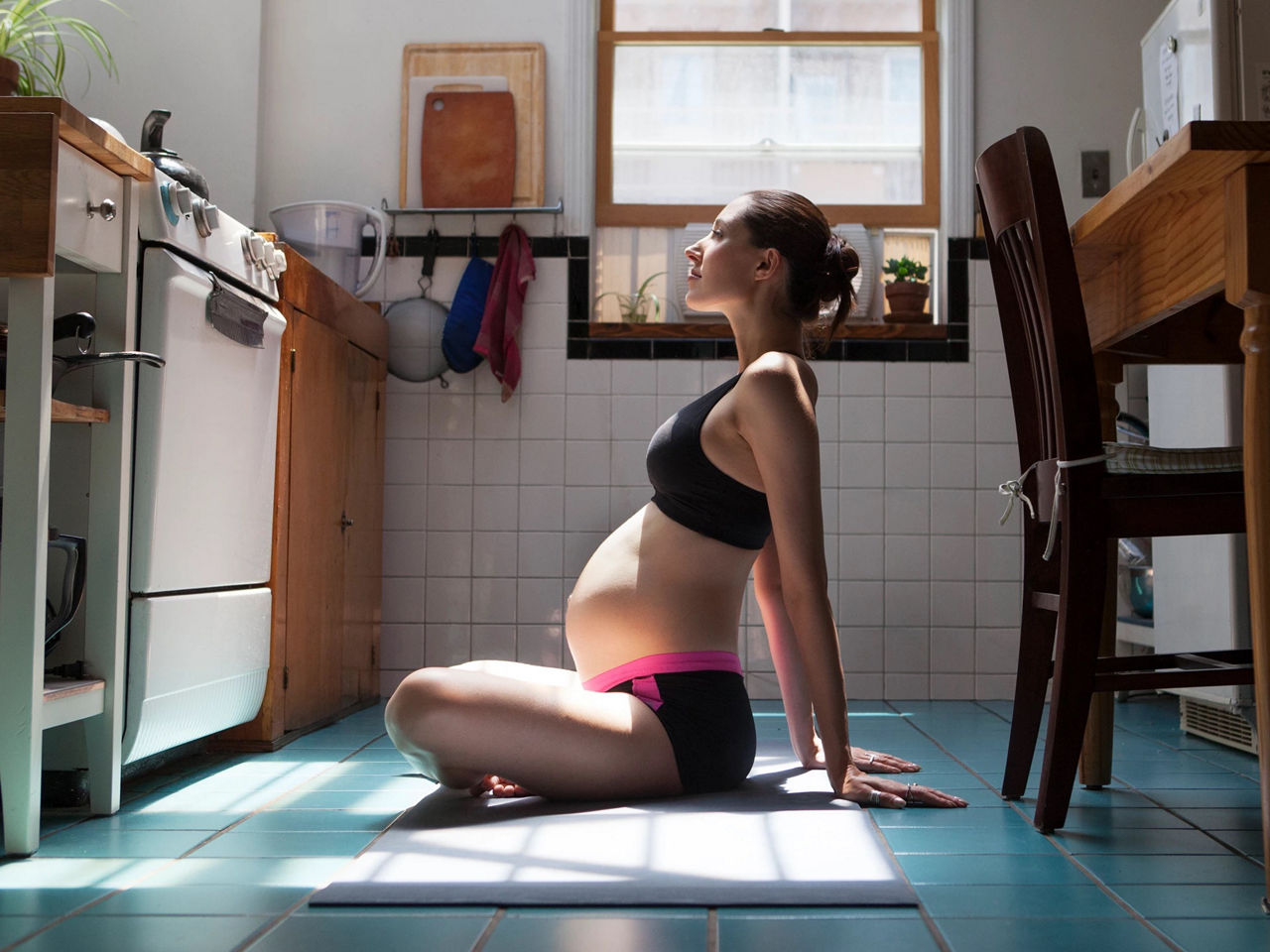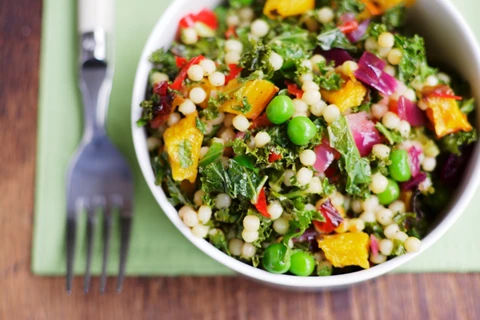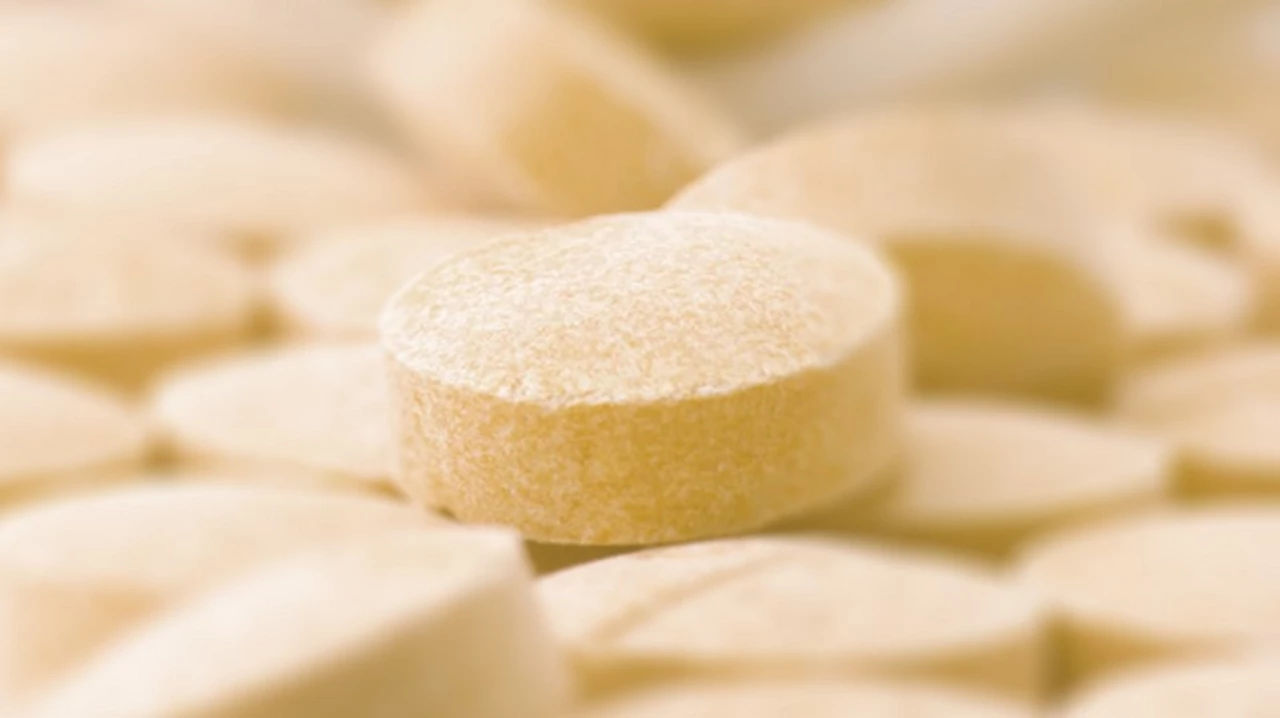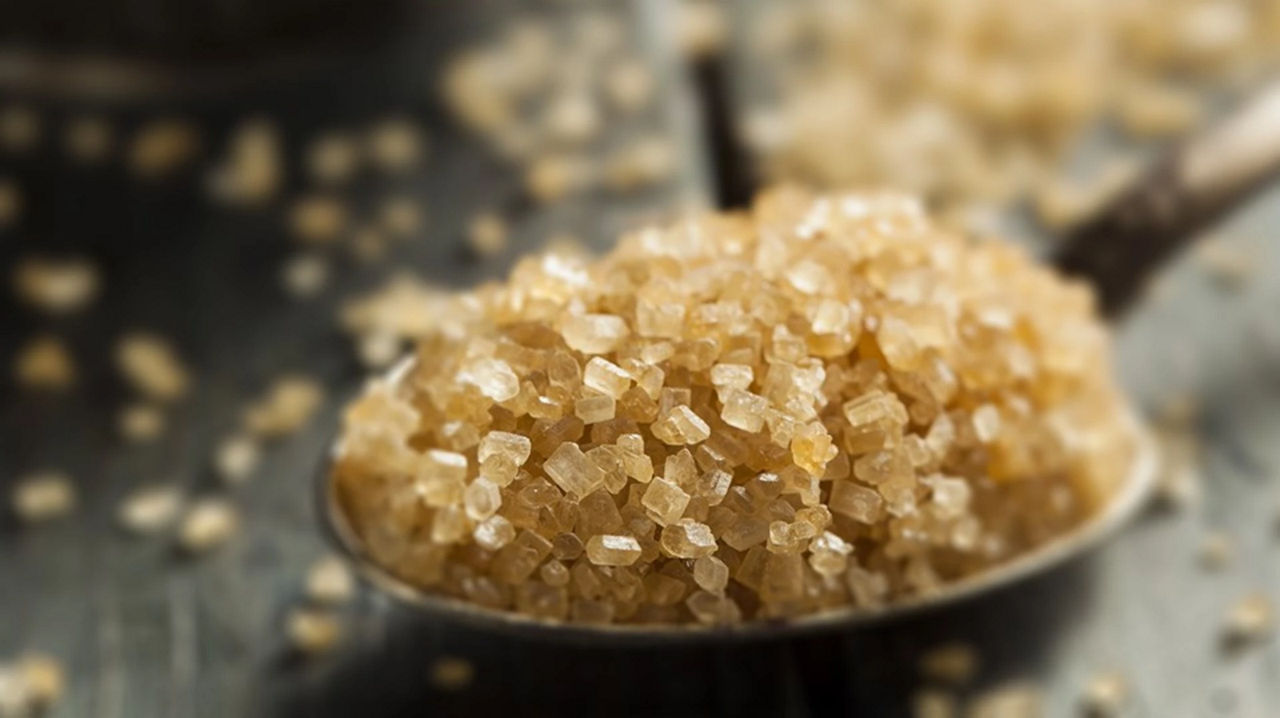20 Weeks Pregnant: Pregnancy Symptoms & Baby Development
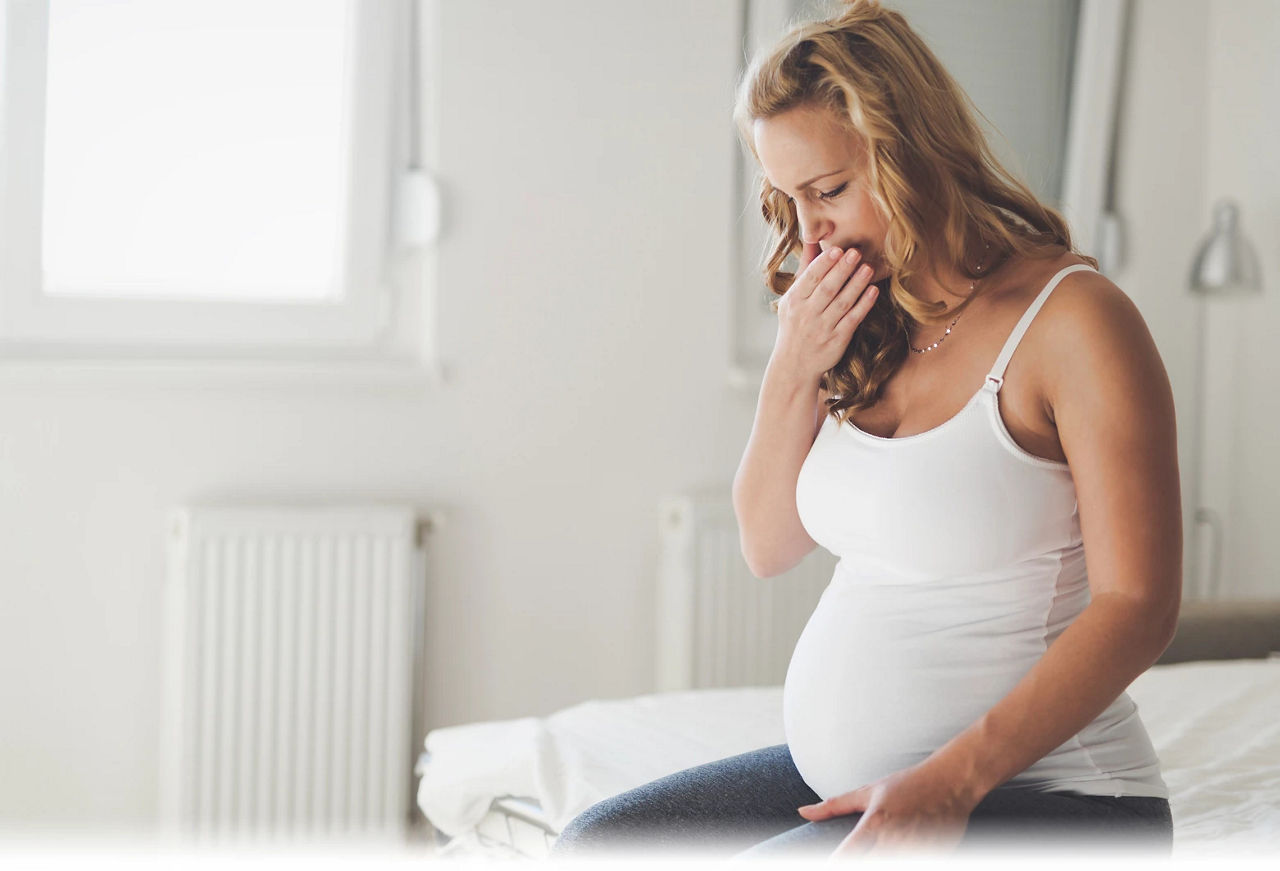
Explore pregnancy stages week by week
20 weeks pregnant is how many months?
Month 5 (Trimester 2)
It might be hard to believe, but at 20 weeks pregnant you’re now halfway through your pregnancy. With your baby focused on growing bigger and putting on weight, you might be getting ready to see them again on screen at your 20-week scan. This is also known as the anomaly scan, and if you choose to do so you can find out your baby’s sex1.
Let’s explore some of the developments happening for your baby this week, and some of the common pregnancy symptoms - including leg cramps, heartburn and constipation. We’ll also look at the changes happening to your body at 20 weeks pregnant, and why iron is vital to a healthy pregnancy diet.
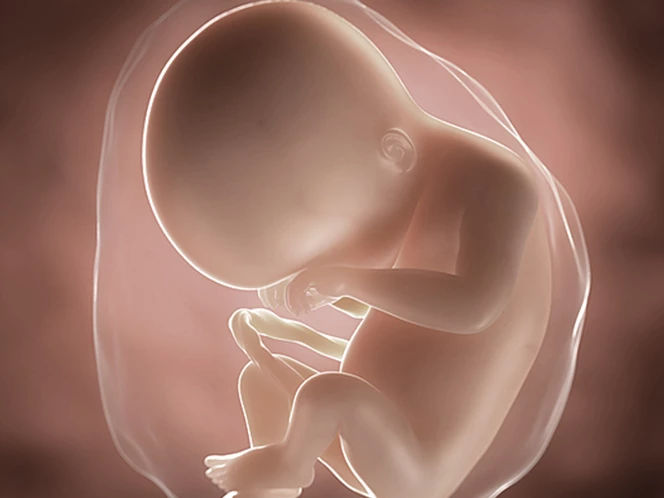
Your baby’s development at 20 weeks pregnant
During the second trimester, there’s a lot going on in terms of foetal development. Your baby is becoming more active, and you may already be feeling them rolling and tumbling as they punch, kick and turn in your uterus2. At this point in your pregnancy, your baby’s focus will be to continue putting on weight as they get ready for birth.
If you’re having a baby girl, her uterus will be developing, and her ovaries will already have seven million primitive eggs in them - two million of which she’ll be carrying at birth3. If you’re having a baby boy, then this is the week when the testes start lowering from his abdomen, dropping into the scrotum from 26 weeks4.
How big is my baby at 20 weeks pregnant, and what do they look like?
At 20 weeks pregnant, your baby (still referred to as a foetus) measures approximately 25.6 cm long and is around the size of a banana2. Your baby is now measured from their head to the heels of their tiny feet. This is instead of head to bottom, a measurement used earlier on in pregnancy when your baby’s legs were curled up and difficult to see2.
Your baby’s skin will now be covered with vernix (also known as vernix caseosa), a fatty, white and greasy substance. Because your baby will spend nine months floating in amniotic fluid, vernix protects your baby’s skin from drying out. It will also make it easier for your baby to ease down the birth canal when you go into labour2.
Your anomaly scan
This week, it might be time for you to attend your 20-week scan if you’ve opted to have one. Carried out by a sonographer at anywhere between 18 and 20 weeks, the 20-week scan is also known as the anomaly scan, or the anatomy scan. It’s an important part of your antenatal care as it will be able to determine a number of things about how your baby is developing physically.
The anomaly scan is also an opportunity for the sonographer to check that your placenta is functioning correctly1.
It’s important to understand that the anomaly scan is ultimately a medical examination, and looks closely at your baby's abdomen and kidneys, spinal cord, bones, heart and brain. Whilst it can’t pick up on every condition, it will check for conditions including1:
- Spina bifida
- Cleft lip
- Serious heart abnormalities
- Edwards’ and Patau’s syndrome
- Anencephaly
You’ll be supported throughout the ultrasound scan; in most cases, everything will be as it should be. However, if there’s a cause for concern, a doctor may come and take a closer look and you’ll be guided and advised about any next steps.
If you’d like to know your baby’s sex, you should be able to find this out at the 20-week scan.
Pregnancy at 20 weeks (second trimester): what’s happening in my body?
The placenta is working hard at 20 weeks pregnant, passing nutrients and oxygen to your baby and removing waste products5.
Whilst more common in later pregnancy, you may start to experience Braxton Hicks contractions. These are sometimes called practice contractions and are irregular and don’t last for long. They may feel uncomfortable or a little like a ‘tightening’, but they’re generally not painful6. If you find that the pain becomes more severe or is accompanied by bleeding, always seek advice from your doctor or midwife, as this could be a sign that you’re in early labour.
At 20 weeks pregnant, many women see a dark line develop down the middle of their tummy. This is completely normal and is down to the skin pigmentation as your baby bump gets bigger7. Around about now, you might also notice that hair feels thicker and shinier7.
20 weeks pregnant: signs and symptoms
Now that you’re halfway through your pregnancy, let’s take a look at some of the symptoms that you might be experiencing.
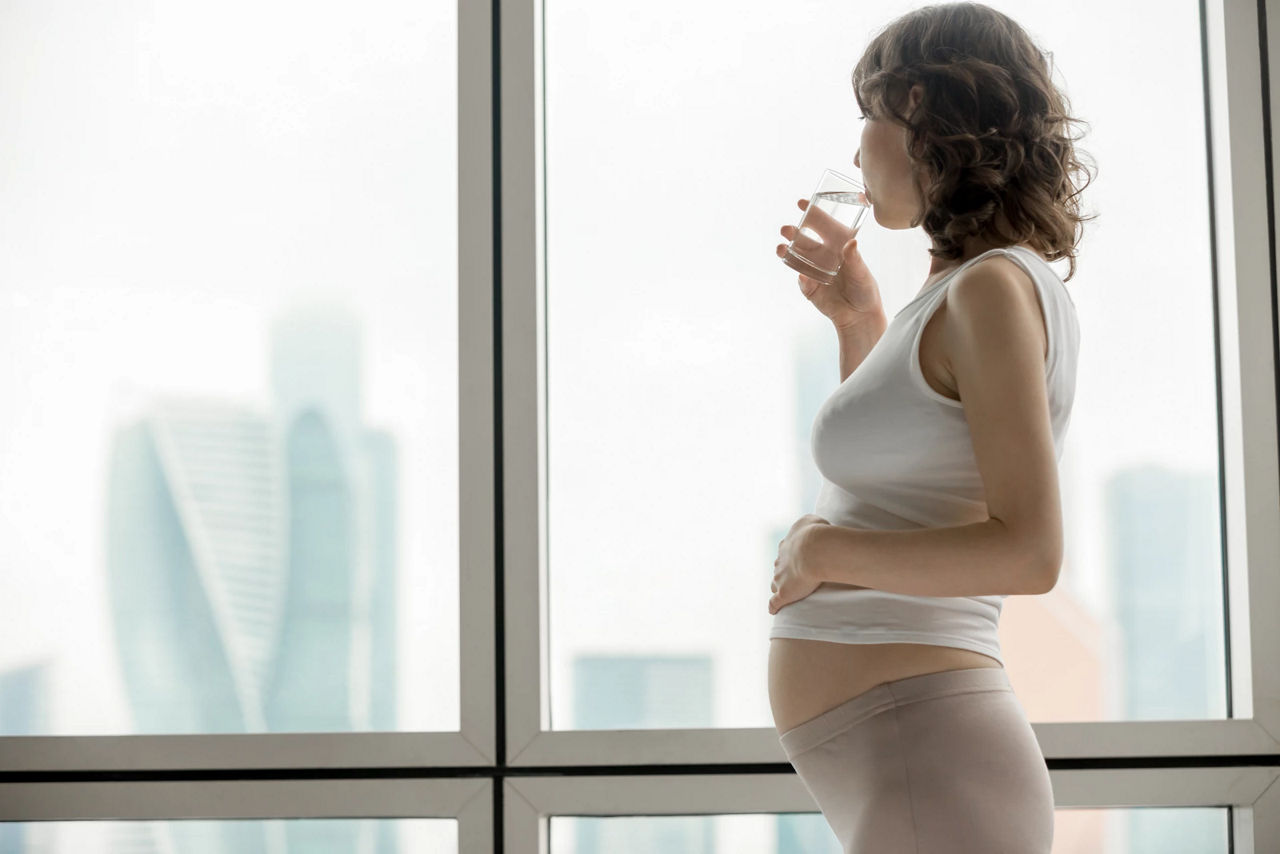
Exercising at 20 weeks pregnant

Exercising during your pregnancy has a number of benefits for you and your baby. As long as you haven’t been advised otherwise by your doctor or midwife, there’s no reason why you can’t fit regular exercise into your daily routine14.
Whether you’re already doing regular exercise, or you’re a complete beginner, it’s always a good idea to run your intended exercise plan by your healthcare provider. That way you’ll know you’re exercising at a level that’s right for you.
As a general rule of thumb, you should be able to easily have a conversation during exercise, so if you find yourself struggling for breath, it’s a sign that you’re overdoing things. Read more about exercising safely in pregnancy here.
You could try:
- Walking for 30 minutes every day14. If you can’t manage that amount, do what feels comfortable for you, as any level of exercise is beneficial
- Yoga. Pregnancy yoga will help to ease tension, relax your muscles and enable you to practise some breathing techniques15
- Swimming. Swimming is a really good pregnancy exercise as it will support the weight of your growing bump15
Focus on: Calcium
Reviewed by Bahee van de Bor
Widely recognised for its importance in the normal development of bones and teeth, calcium is an essential nutrient for your baby throughout pregnancy and childhood16.
Calcium comes from your diet, and an adequate intake stops your body withdrawing calcium from your own stores, which could affect your own bone health. So as well as helping your baby grow and develop normally, a healthy calcium intake in pregnancy is important for your own bone health too17.
Good sources of calcium include18:
- Dairy foods or fortified dairy alternatives
- Calcium-set tofu
- Green, leafy vegetables such as kale, broccoli and okra
- Fortified breads and cereals
- Fish, such as sardines and pilchards that are eaten with bones
If you’re vegan or follow a plant-based diet, or unable to eat dairy foods for another reason, you may need a calcium supplement during your pregnancy. Pregnant women require 700mg of calcium per day, with that requirement increasing to 1250mg during breastfeeding. It’s important to talk to your midwife or other healthcare professional before talking any supplements during pregnancy.
20 weeks pregnant: next steps
At 20 weeks pregnant, you’ll have decided whether you wish to have your anomaly scan. If you’ve chosen to do so, think about whether you’d like anyone to come with you, and have a read about what’s involved and what to expect.
If you’re struggling with some of the things you’re advised to avoid in pregnancy, for example smoking or your caffeine and alcohol intake, now is the time to have a chat with your midwife about strategies that can help.
If you’re planning to attend an antenatal class, you should start exploring what’s available in your local area. Your midwife may be able to help here, and let you know your options.
Other things to think about include:
- Making a birth plan
- Ensuring that you are eating a healthy balanced diet
- Deciding whether to have a birth partner present when your baby is born
- The things you will pack in your hospital bag - you can download our handy checklist here
related articles
Read More

Need some help?
You can get quick answers to common questions in our FAQs.
Alternatively, if you need help with general pregnancy or baby advice, or maybe on using or ordering our products - our expert team are always on hand to talk about feeding your baby.


